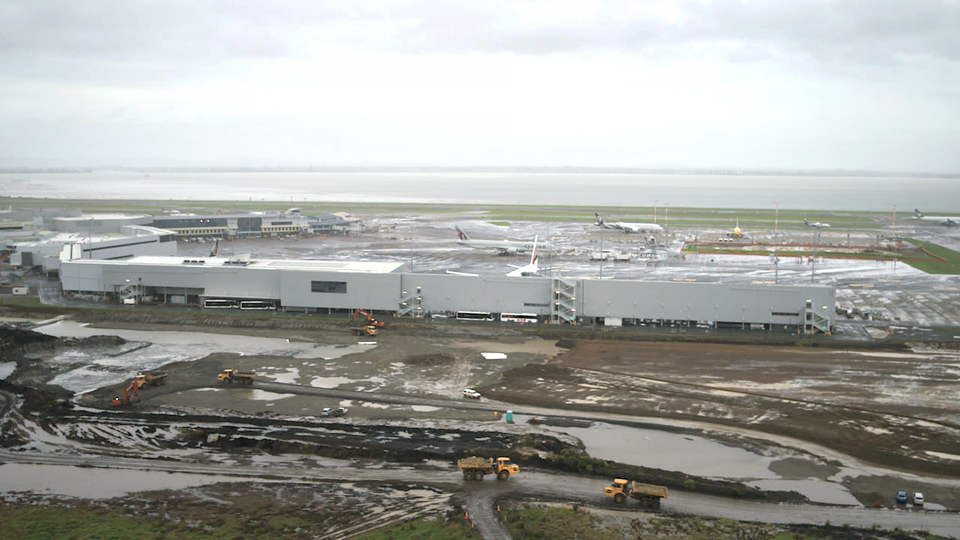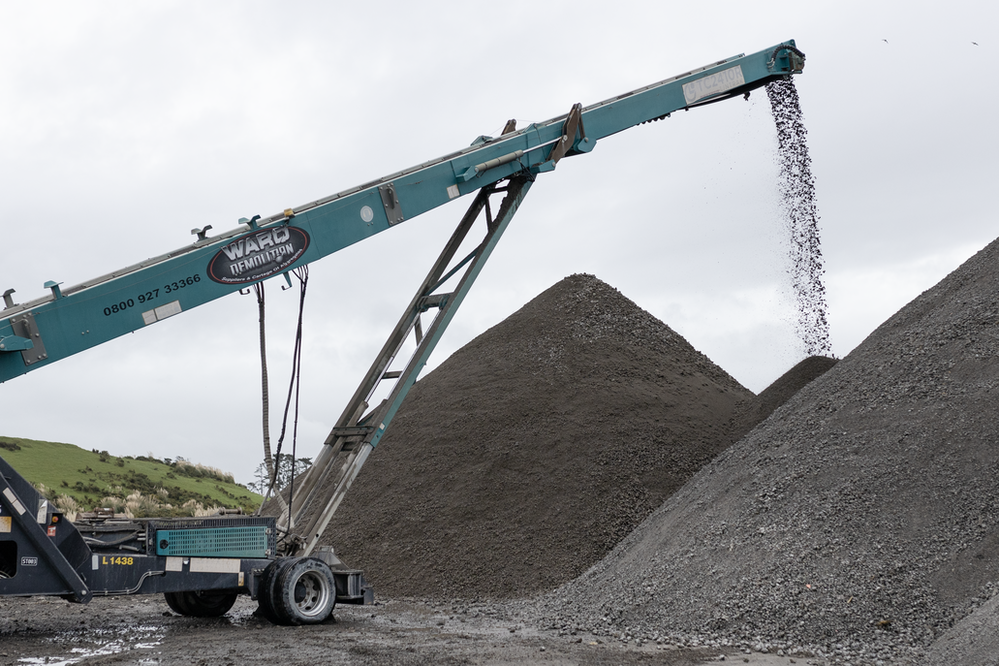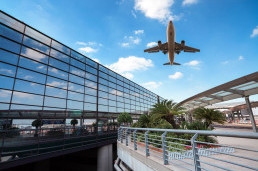
Paving the Way: Auckland Airport Recycles Runway as Part of Major Airfield Expansion
- 2023-06-07
- Expansion of Auckland Airport airfield underway to enable construction of the new combined domestic and international terminal
- Re-purposing materials on site, with an overall target of at least 70% diversion of construction waste

Auckland Airport is laying the foundation for a massive airfield development by recycling its runway – and keeping 6000 truck trips off Auckland’s roading network in the process.
Rather than being sent offsite as waste, 108,000 tonnes of concrete that previously formed the airport’s runway touchdown zones is being crushed up and repurposed as backfill for 250,000m2 of new airfield, taking place to the west of the international terminal.
André Lovatt, Chief infrastructure Officer at Auckland Airport, said it made sense to reuse wasted concrete already onsite to create the strong, stable base needed to take the weight of fully laden aircraft.
“We’ve been underway with pavement renewals across our runway and taxiways for several years now. It’s a necessary and important part of maintaining Auckland Airport’s most important asset. Over the past few years, we’ve replaced hundreds of concrete slabs, which are 36 square metres each.
“Rather than disposing of this old pavement offsite, we’ve been setting it aside, creating a huge mound of 45,000 cubic metres of concrete to the south of the airfield. The old pavement is now being trucked to crushing machines on site for use in the airfield expansion, to be completed between now and mid 2025.”
The project – which spans over 23 rugby fields in size – is the largest airfield expansion in the airport’s history, and a critical enabler to allow the development of a new domestic terminal to be integrated into the existing international terminal.

“We need to create a new area for aircraft parking, with a large part of the airfield about to become a construction site for development of the newly integrated terminal. This requires more than 80,000m2 space for its apron and airfield operations, meaning the current space where aircraft park-up temporarily will be impacted.”
The airfield expansion project adds extra taxiways and seven remote stands for aircraft that layover for several hours before departing again, five of which will have in-ground jet fuel reticulation and other services. In time it will connect to a planned cargo precinct and, further into the future, a second runway.
“The project was underway prior to the pandemic but was paused in March 2020. We’re thrilled to get going again, particularly given it’s key to constructing our new terminal and will help to minimise disruption to busy airline operations.
“The airfield expansion requires a base of approximately 1.5 metres deep, capable of taking the weight of A380s, which are around 280 tonnes. Re-purposing materials allows us to be efficient in how we work and responsible with our construction waste,” said Mr Lovatt.
The production of cement – a key ingredient in concrete – is estimated to contribute to around 8% of global carbon emissions, while construction waste forms a major part of the waste stream. Auckland Airport aims to divert at least 70% of construction waste from landfill or similar disposal across all its infrastructure projects.
“There are new ‘green concrete’ technologies coming into play, which will help reduce construction industry emissions, but one action we can take today is to be really mindful about the materials that have already been created and make sure they continue to be used beyond that original purpose.
“We have got some ambitious sustainability targets, including getting to net zero by 2030 for direct emissions. In addition, we are hunting down every opportunity across our business for waste minimisation and further emissions reductions.”
Re-purposing the concrete as engineered back-fill is projected to save approximately 3,900 disposal trips and a further 2,400 trips of imported fill material.
Key Facts:
- $ 3.9 billion development programme underway – part of which includes 250,000sqm expansion of airfield
- 750,000 cubic meters of earth is being moved
- 350,000 tonnes of aggregate will be used for pavement construction
- The taxiways and remote stands will be built to Code F standard, which is required for the largest operating aircraft (greater than 65m wingspan) now and in the future

- CATEGORY
- COUNTRY / AREA
- New Zealand
- AUTHOR
- Auckland Airport







